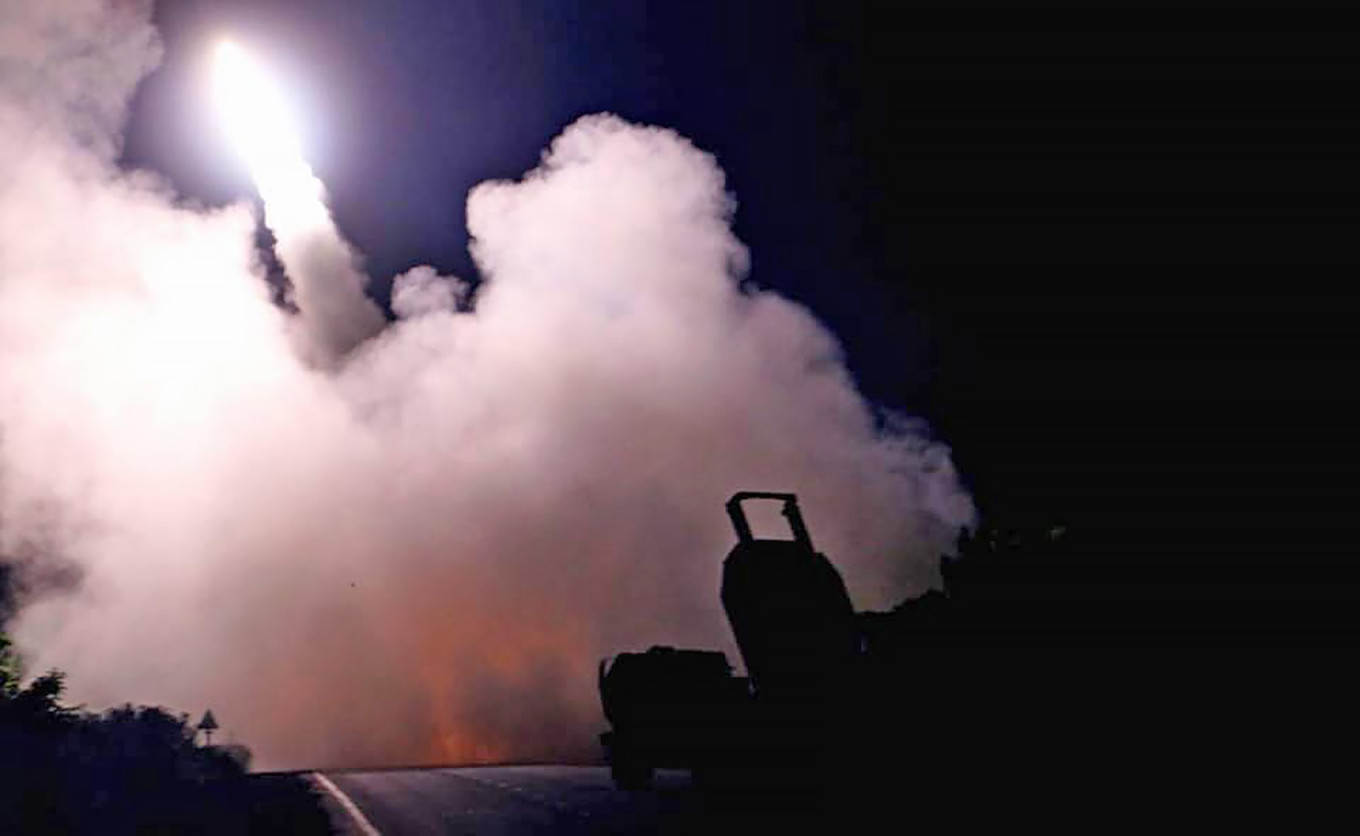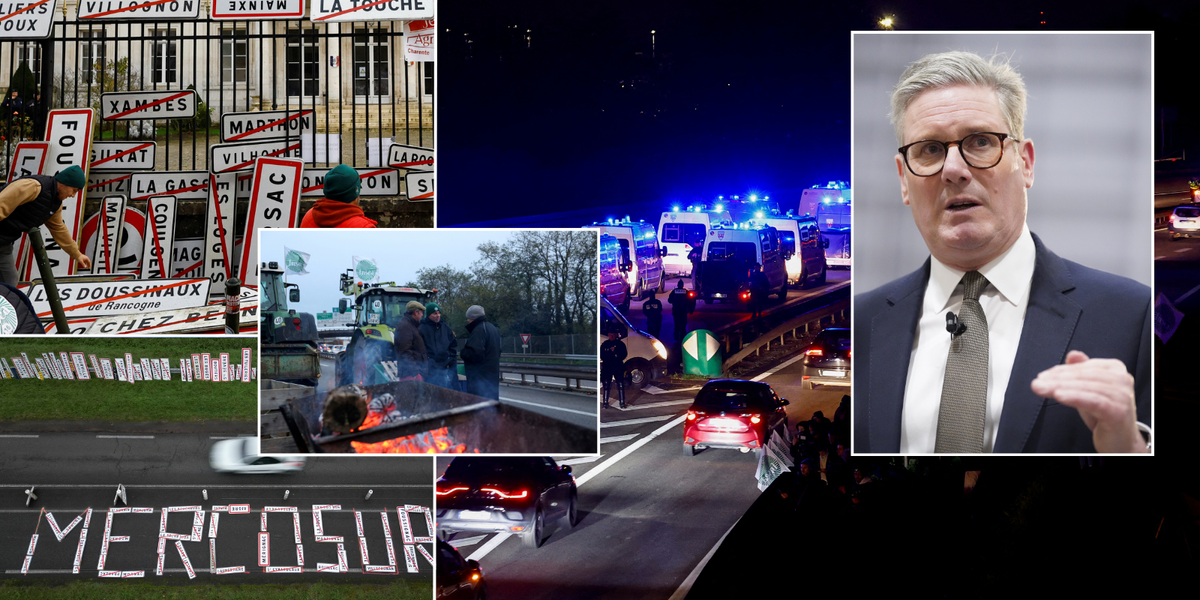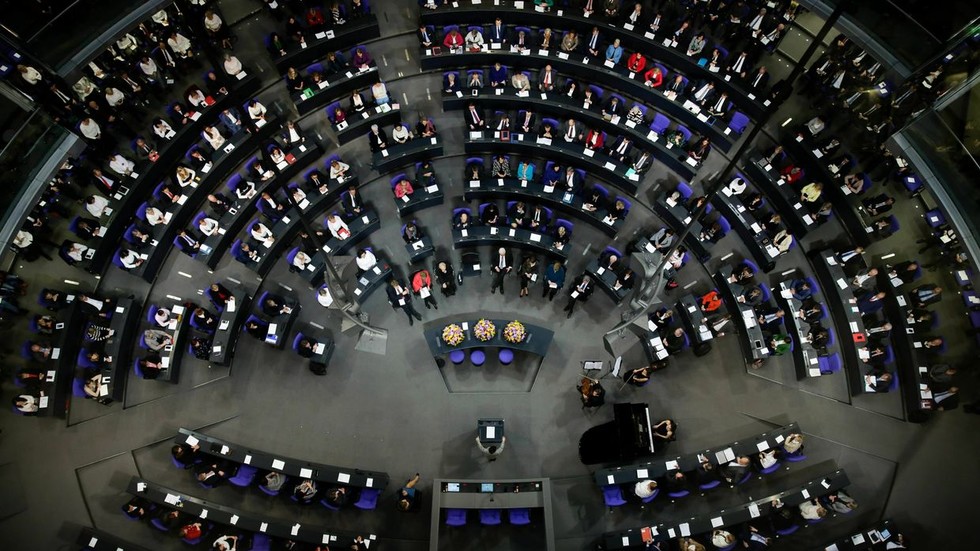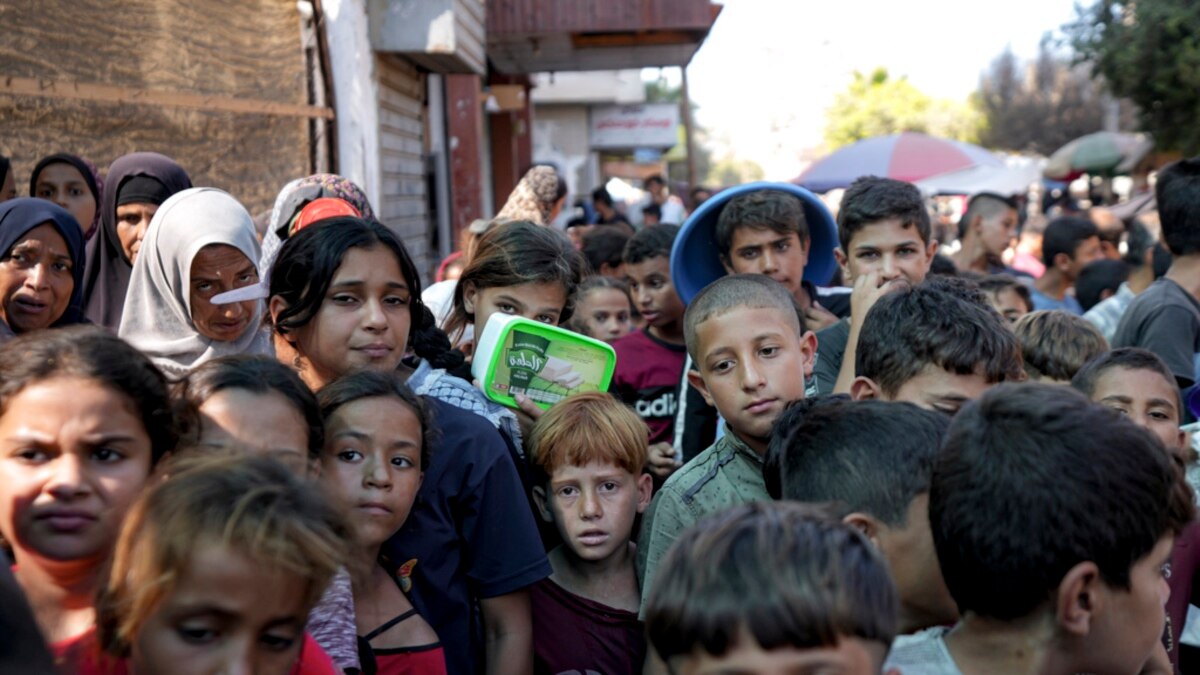U.S. President Joe Biden has cleared Kyiv to use long-range American missiles against military targets inside Russia, U.S. media reported late Sunday, promoting fears of escalating the conflict with nuclear-armed Moscow.
The New York Times and The Washington Post, which first broke the news citing anonymous U.S. officials, said the 81-year-old Democrat's shift came in response to North Korean troops being deployed to help Moscow's war effort against its neighbor.
Ukrainian President Volodymyr Zelensky has long pushed for authorization from Washington to use long-range missiles to hit targets inside Russia.
The Moscow Times takes a look at how it could affect the situation on the battlefield.
What are the long-range missiles that Ukraine can now use in Russia?
The missiles — the Army Tactical Missile Systems, or ATACMS — are ballistic missiles which depending on the model are capable of striking up to 300 kilometers away and may carry a warhead with around 170 kilograms of explosive.
That means that the missiles can hit key targets such as ammunition depots, command centers and troop concentrations located deep behind the front.
ATACMS is intended for launch from a multiple-launch rocket system, such as the HIMARS mobile launchers provided by the U.S. to Ukraine, as well as from the older M270 launchers supplied by Britain and Germany.
How could long-range missiles impact the situation on the front line?
According to The New York Times, Ukraine’s use of ATACMS will likely be limited to defending its troops in Russia's Kursk region, where Kyiv has held territory since launching a bold cross-border incursion in early August.
Kyiv has also warned that Moscow, alongside the North Korean soldiers, has amassed a 50,000-strong force to rout Ukraine's army in Kursk.
However, military experts interviewed by The Moscow Times said that permission for Ukraine to use long-range missiles for strikes inside Russia is not expected to alter the course of the military actions between Moscow and Kyiv.
The situation on the front is unlikely to change as the current authorization for use appears to be limited to one area, military expert Alexey Alshansky told The Moscow Times.
“In the context of the current war and ongoing combat operations, this is more of a gesture. [The use of long-range missiles] may enhance the effectiveness against Russian logistics, creating temporary disruptions and extending the delivery cycle for ammunition and supplies to Russian troops,” Alshansky said.
“However, this is not about crippling the logistics of Russian forces in the region but rather it will lengthen the logistical chain,” he said, adding that Moscow could also have prepared for such approval and redeployed critical assets or strengthened air defense.
The quantity of ammunition is a separate issue, said military analyst and former Ukrainian security officer Ivan Stupak.
“While the strikes might halt the advance of the Russian army [in Kursk], we clearly understand that there will be a limited number of those missiles and we must take into account that some of them will be shot down by Russian air defense,” Stupak told The Moscow Times.
Is there a risk of further escalation?
Washington's decision on the weapons comes weeks after Ukraine warned that North Korea was training and dispatching thousands of its troops to aid the Kremlin war in Ukraine, which is approaching its third anniversary.
Following the news, the Kremlin on Monday accused Washington of escalating the war in Ukraine.
"It's obvious that the outgoing administration in Washington intends to take steps in order to continue fuelling the fire and provoke a further escalation of tensions," Kremlin spokesman Dmitry Peskov told reporters.
"If such a decision was really formulated and announced to the Kyiv regime, then of course it's a qualitatively new spiral of tensions and a qualitatively new situation from the point of view of the U.S.'s engagement in the conflict," Peskov added.
 Ukrainian HIMARS on combat mission.
Mil.gov.ua
Ukrainian HIMARS on combat mission.
Mil.gov.ua
President Vladimir Putin in September warned that such a move would put NATO "at war" with Russia — and that if Ukraine were to attack Russia with long-range missiles then Moscow would "take the appropriate decisions based on the threats."
Peskov said Monday that Putin's position is that such strikes would ultimately be carried out not by Ukraine, but by the countries that permit such missile use.
Intelligence analyst Ryan McBeth told The Moscow Times that such policies from Moscow are more likely to be seen as ”fear-mongering.”
“They know that using a single nuclear weapon will result in overwhelming retaliation by NATO,” McBeth said.
However, expert Alexander Graef, a senior researcher at the Institute for Peace Research and Security Policy at the University of Hamburg, was more cautious in his view.
“Allowing Ukraine to strike military targets in Russia using ATACMS and other systems alone will not result in ‘winning’ anything. It may buy time, i. e. in the Kursk region, enough to hold or improve Ukraine's position until the [Donald] Trump admin comes into office,” Graef said on X.
“This said, there are good reasons why Biden has been reluctant. The step creates risks for the West but does not alter the strategic situation. Yet, as pressure on Ukraine grows, so do the stakes. The coming months will be among the most challenging and dangerous,” he added.
AFP contributed reporting.
A Message from The Moscow Times:
Dear readers,
We are facing unprecedented challenges. Russia's Prosecutor General's Office has designated The Moscow Times as an "undesirable" organization, criminalizing our work and putting our staff at risk of prosecution. This follows our earlier unjust labeling as a "foreign agent."
These actions are direct attempts to silence independent journalism in Russia. The authorities claim our work "discredits the decisions of the Russian leadership." We see things differently: we strive to provide accurate, unbiased reporting on Russia.
We, the journalists of The Moscow Times, refuse to be silenced. But to continue our work, we need your help.
Your support, no matter how small, makes a world of difference. If you can, please support us monthly starting from just $2. It's quick to set up, and every contribution makes a significant impact.
By supporting The Moscow Times, you're defending open, independent journalism in the face of repression. Thank you for standing with us.
Continue
![]()
Not ready to support today?
Remind me later.

 By The Moscow Times | Created at 2024-11-18 15:20:27 | Updated at 2024-11-18 17:20:58
2 hours ago
By The Moscow Times | Created at 2024-11-18 15:20:27 | Updated at 2024-11-18 17:20:58
2 hours ago







